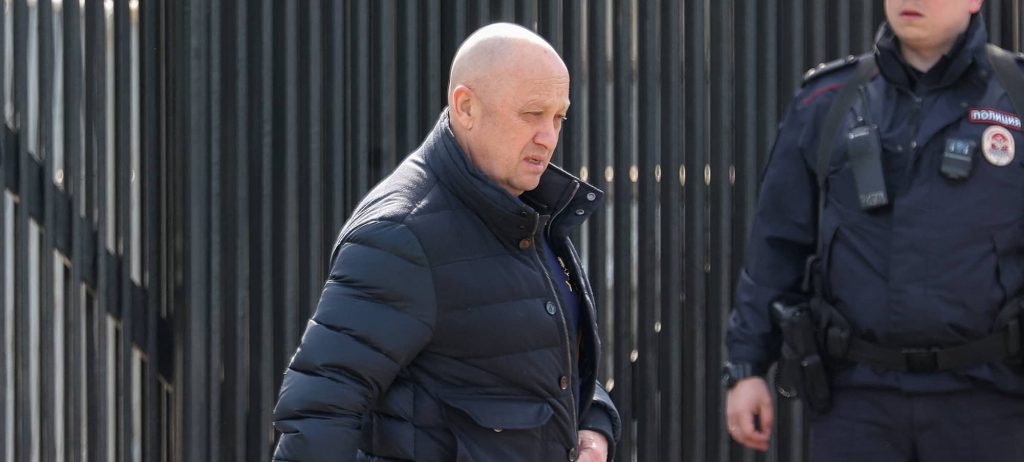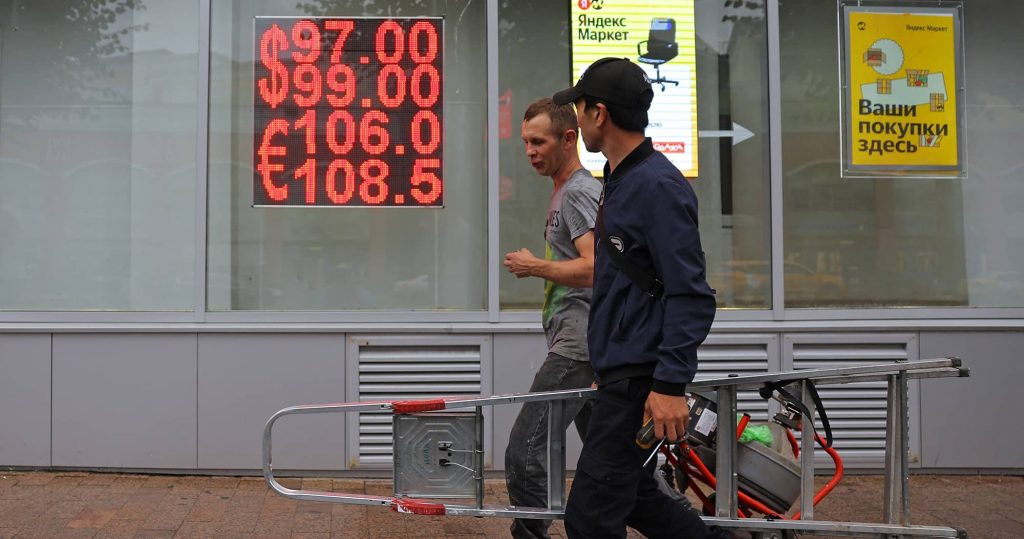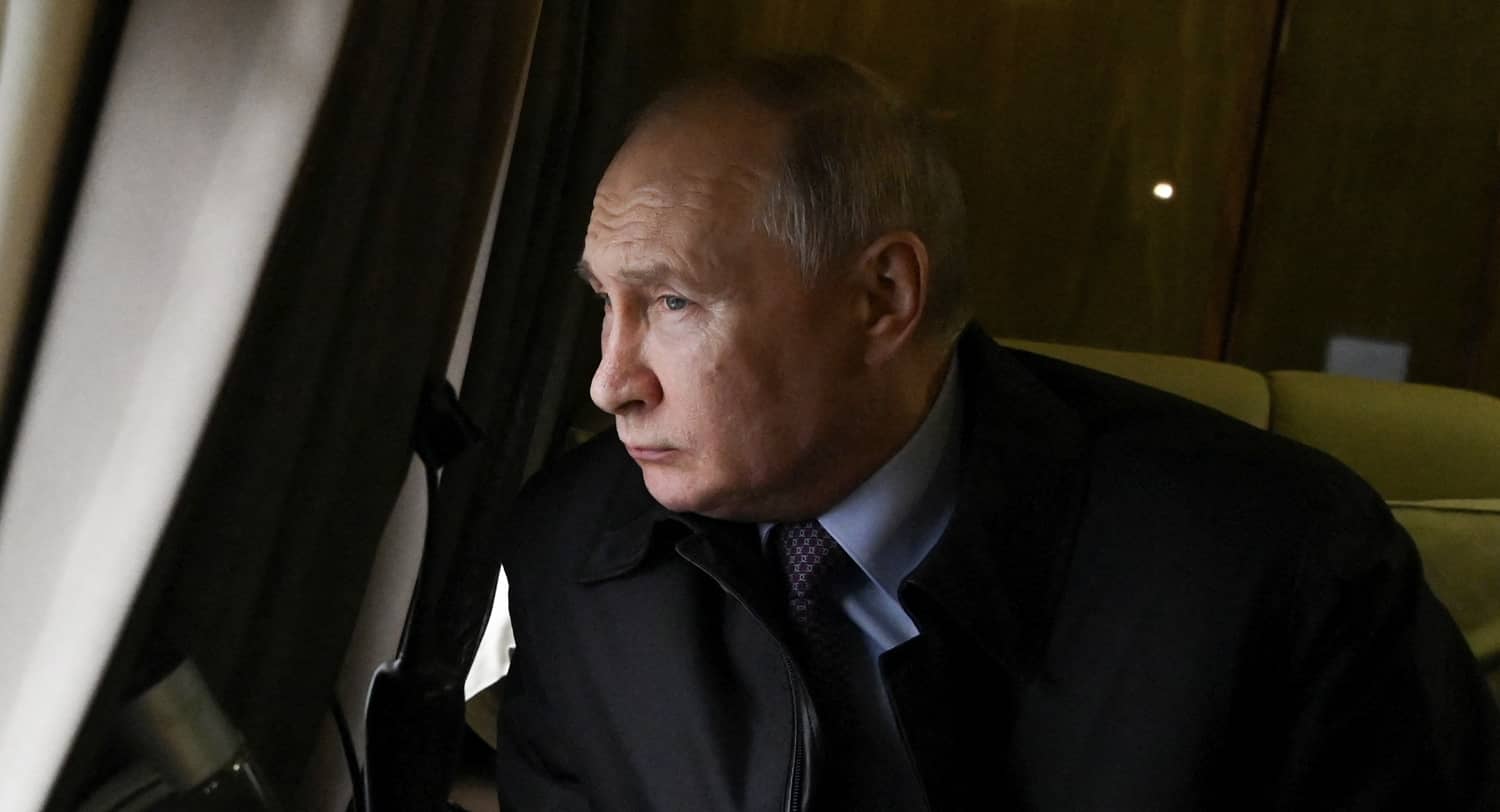The war in Ukraine was supposed to be over in just a few days, according to US intelligence sources. One and a half years later, both sides are preparing to continue fighting in the months to come.
The war is taking an incredible toll on Ukraine. Its men and women are fighting instead of working or studying, its cities are regularly pounded by the Russian army, its seaports are blocked by Russia and its prospects for economic revival are currently distant.
At the same time, Russia is also paying a heavy price for the war that it launched, suffering from economic sanctions, international ostracism and brain drain. To a visitor, Moscow’s summer terraces where the elites sip fancy drinks might look the same as before the war. The glossy façade is still there, but the structure itself is no longer stable and more changes should be expected.
Broken promises, inevitable power struggles
Western intelligence agencies weren’t the only ones to predict that Kyiv would fall within days after a Russian invasion. Putin did too. But the plan of a quick takeover was badly planned and based on faulty assumptions, such as the disdain of Ukrainians towards their leadership and sympathy toward Russia. The battles in Ukraine revealed that the Russian army was clumsy and incapable of maneuver, that it was ill-equipped and that its soldiers were severely under-motivated. The generals whose only quality was their loyalty to Putin made bad decisions, while those who were more capable were sidelined.
While it might seem that Putin has a full monopoly on power and full control of Russian elites, the mutiny of Yevgeny Prigozhin’s Wagner group and Prigozhin’s post-mutiny treatment indicate otherwise. Putin was unable to contain the simmering conflict between Minister of Defense Shoygu and the head of Russia’s strongest militia. Prigozhin, Putin’s old acquaintance from his days in the town hall of St. Petersburg, revealed several things: the apathy among both elites and ordinary citizens towards a possible change in higher echelons of power; the incompetence of the authorities; the disaffection inside the army towards Putin and his close circle of aides. While ordinary Russian citizens are being sent to penal colonies for even the most subtle of criticisms of the presidency and the army, Prigozhin enjoys freedom and continues to operate Wagner in Belarus and Africa.

The fissures between the various “towers of the Kremlin” are likely to widen and the competition among them to become more fierce. With several of the most competent Russian generals dismissed or disappeared and a new law allowing officers to be tried for “strategic failures on the battlefield,” dissent in the army will inevitably grow. In addition, the inability of the Russian leadership to deliver at least some of the proclaimed goals of the war and bring important gains to the elites, will add to the destabilization. It doesn’t mean that Putin will find himself out of power tomorrow, but the very pillars of his power are starting to weaken, and might eventually break down.
Shattered economy
On June 23, the Brussels Center for European Studies published a report by Vladimir Milov (Russian economist and opposition leader, a former deputy minister of energy) on the impact of Western sanctions on the Russian economy. According to Milov, owing to a 52.3 percent reduction in oil and gas revenue year-on-year in the first quarter of 2023, Russia is having difficulty replenishing its military budget and is no longer able to plan new offensive operations.
Today with international prices for oil spiking, Russia should be able to reap some budget benefit. Yet China buys Russian oil at a significant discount (though the discount for India shrunk significantly in July). It’s hard to believe that the current surge in oil prices will save Russia’s budget deficit and its stalling economy.
In April, the Russian government ordered that publication of statistics on oil and gas production be suspended for one year. The Russian ruble has plunged over the last few months, losing almost 25 percent of its value, and there is a foreign currency shortage. And while Russia was able to use many sanctions loopholes thus far, the new sanctions packages published by the EU and US seek to target these routes and close the gateways to Russian business.
While Russian officials predict the war economy will actually recover in 2024, Oleg Deripaska, one of Putin’s oligarchs, actually said recently that Russia will “soon find itself without money” and added that it urgently needs foreign investments.
Does it mean that next year Russia will have less money to spend on the war in Ukraine? Not necessarily. As the old Soviet joke goes, “Daddy, you have no work now, does it mean that you will drink less vodka? No, kids, it means that you will have fewer meals.”

Crime, poverty and brain drain
According to Russian official data, the budget target for defense spending has doubled in 2023 to $100 billion, more than one third of all public expenditure. As the state injects more money into its military industries, it means less budget for schools, health clinics and other essential services for everyone else in the country.
It’s difficult to imagine Russians’ protesting en masse against their government’s war against their neighbors. But it’s quite likely that further deterioration in the standard of living could provoke some social unrest. Recently in the Russian republic of Dagestan hundreds of citizens protested against the authorities following an electricity power cut during a massive heatwave. The republic’s governor Sergei Melikov said, “Sadly, we cannot expect quick results,” indicating that the power infrastructure in the region was neglected for 30 years.
In other regions, close to the frontline with Ukraine, there is a sharp surge in crime especially when Wagner veterans return home, bringing with them weapons and violence.
Poverty, crime, despair – these were behind the apathetic reaction of Rostov residents during the short-lived Prigozhin mutiny of this June. They might not go into the streets to protest for change, but neither are they likely to oppose change. For many young and educated Russians the obvious solution is emigration, although the process for it is becoming increasingly difficult. Rumor has it that the only reason why Kremlin hasn’t nationalized its internet giant Yandex is out of fear that doing so would trigger even more brain-drain.
Authoritarian regimes may enjoy longevity, even with crazy policies. Saddam Hussein’s regime survived for 12 years after the First Gulf War of 1991, and Bashar Assad is a living example of this axiom. After all, their main task is to survive. In the process, however, their countries become unlivable. This is exactly what might happen to Russia. As its economy grows weaker, its well-off population will weaken and the rest will be devastated by poverty and crime.
All of these processes will further destabilize the governing system and escalate an ongoing struggle between the various power groups in Moscow. The Russian president is set to play a long-term game, because he is sure that the West will lose patience soon and, in the absence of clear Ukrainian victory, abandon Ukraine.
There is absolutely no reason to reach out to Putin with an olive branch and offer him attractive deals at Ukrainian expense. He would just perceive it as a confirmation of his strength and wisdom, and no one in Europe would be safe. The West must continue to be patient and not let Putin win his game of chicken.

